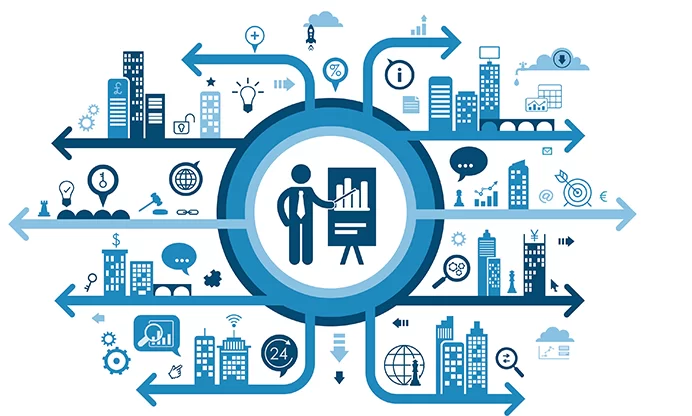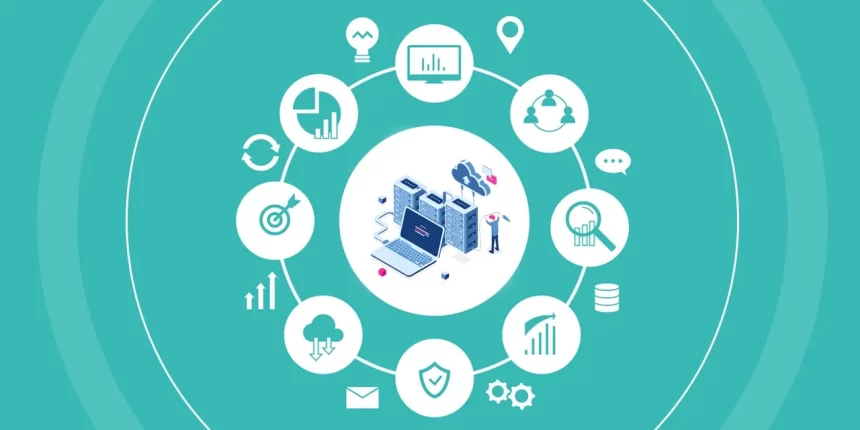Big Data has become a buzzword in the tech industry, but what does it really mean? Why is it so crucial in today’s world? In this article, we’ll dive deep into the realm of Big Data, exploring its significance, applications, challenges, and future trends. Whether you’re a tech enthusiast or a business professional, this guide will provide valuable insights into the vast universe of Big Data.
What is Big Data?
Big Data refers to the massive volumes of data generated every second by businesses, social media, sensors, and various other sources. It’s characterized by four key attributes known as the 4 Vs:
Volume
The sheer amount of data produced is staggering, reaching terabytes and petabytes.
Variety
Data comes in multiple formats – structured, unstructured, and semi-structured.
Velocity
The speed at which data is generated and processed is incredibly high.
Veracity
Ensuring the accuracy and reliability of data is a significant challenge.
The Evolution of Big Data
Big Data isn’t a new concept. It has evolved over decades, from the early days of database management to the advanced analytics we see today.
Historical Context
Initially, data was stored in simple databases. As the amount of data grew, so did the need for more sophisticated storage and processing solutions.
Technological Advancements
The development of technologies like Hadoop and cloud computing has revolutionized the way we handle Big Data, making it more accessible and manageable.

Why Big Data Matters
Big Data is transforming industries and our everyday lives. But why is it so important?
Impact on Businesses
Businesses use Big Data to gain insights, improve decision-making, and enhance customer experiences. It’s a vital tool for staying competitive in today’s market.
Influence on Daily Life
From personalized recommendations on streaming services to smart home devices, Big Data is deeply integrated into our daily routines.
Applications of Big Data
Big Data’s applications are vast and varied. Let’s explore some of the key areas:
In Healthcare
Big Data helps in predicting disease outbreaks, personalizing treatments, and improving patient outcomes.
In Finance
Financial institutions use Big Data for fraud detection, risk management, and personalized banking services.
In Retail
Retailers analyze customer data to optimize inventory, personalize marketing, and enhance shopping experiences.
In Transportation
Big Data improves route planning, reduces fuel consumption, and enhances safety measures in transportation.
In Education
Educational institutions leverage Big Data to personalize learning experiences and improve administrative efficiency.

Big Data Technologies
Several technologies power Big Data processing and analysis:
Hadoop
An open-source framework that allows for the distributed processing of large data sets.
Apache Spark
A unified analytics engine for large-scale data processing, known for its speed and ease of use.
NoSQL Databases
Databases like MongoDB and Cassandra designed to handle a variety of data formats.
Big Data Analytics
Big Data analytics involves examining large data sets to uncover hidden patterns and insights.
Descriptive Analytics
Focuses on understanding past data to identify trends and patterns.
Predictive Analytics
Uses statistical models and machine learning techniques to predict future outcomes.
Prescriptive Analytics
Goes a step further to recommend actions based on the data.
Big Data and Artificial Intelligence
The combination of Big Data and AI is powerful, leading to innovations across various fields.
Synergy Between Big Data and AI
Big Data provides the vast amounts of information that AI systems need to learn and make predictions.
Real-world Examples
AI-powered chatbots, recommendation engines, and autonomous vehicles all rely heavily on Big Data.

Challenges of Big Data
While Big Data offers numerous benefits, it also comes with its own set of challenges:
Data Privacy Concerns
Protecting personal information is a major concern, especially with increasing data breaches.
Storage and Management Issues
Storing vast amounts of data securely and efficiently is a constant challenge.
Ensuring Data Quality
Maintaining the accuracy and reliability of data is crucial for meaningful insights.
Future Trends in Big Data
The future of Big Data is promising, with several exciting trends on the horizon:
The Rise of Edge Computing
Processing data closer to the source to reduce latency and improve efficiency.
Integration with Blockchain
Enhancing data security and integrity through decentralized storage solutions.
Advances in Machine Learning
Continued improvements in algorithms will make Big Data analysis even more powerful.
Big Data in Indonesia
Indonesia is rapidly embracing Big Data across various sectors:
Current Landscape
Both public and private sectors are investing in Big Data technologies.
Government Initiatives
Initiatives like Smart Cities and digital transformation projects are driving Big Data adoption.
Case Studies
Successful implementations in healthcare, finance, and transportation showcase the potential of Big Data in Indonesia.
Ethical Considerations
With great power comes great responsibility. Ethical considerations are paramount in Big Data usage:
Ethical Data Usage
Ensuring data is used responsibly and ethically is crucial for maintaining trust.
Balancing Innovation and Privacy
Finding the right balance between innovation and privacy is key to sustainable Big Data practices.
How Businesses Can Leverage Big Data
Businesses of all sizes can benefit from Big Data with the right strategies:
Strategies for Implementation
Developing a clear Big Data strategy, investing in the right technologies, and building a skilled team are essential steps.
Case Studies and Success Stories
Real-world examples of businesses that have successfully leveraged Big Data for growth and innovation.

The Role of Data Scientists
Data scientists play a crucial role in the Big Data ecosystem:
Skills Required
Strong analytical skills, programming knowledge, and domain expertise are vital.
Importance in Big Data Projects
Data scientists turn raw data into actionable insights, driving informed decision-making.
Conclusion
Big Data is more than just a technological trend; it’s a transformative force shaping the future. By understanding its principles, applications, and challenges, businesses and individuals can harness its power to drive innovation and growth. The journey of Big Data is just beginning, and its potential is limitless.
FAQs
- What is Big Data? Big Data refers to large volumes of data that can be analyzed to reveal patterns, trends, and associations.
- How is Big Data used in healthcare? Big Data is used in healthcare for predictive analytics, personalized medicine, and improving patient outcomes.
- What technologies are essential for Big Data? Key technologies include Hadoop, Apache Spark, and NoSQL databases.
- What are the challenges associated with Big Data? Challenges include data privacy concerns, storage and management issues, and ensuring data quality.
- How can businesses start leveraging Big Data? Businesses can start by developing a Big Data strategy, investing in the right technologies, and hiring skilled data scientists.
